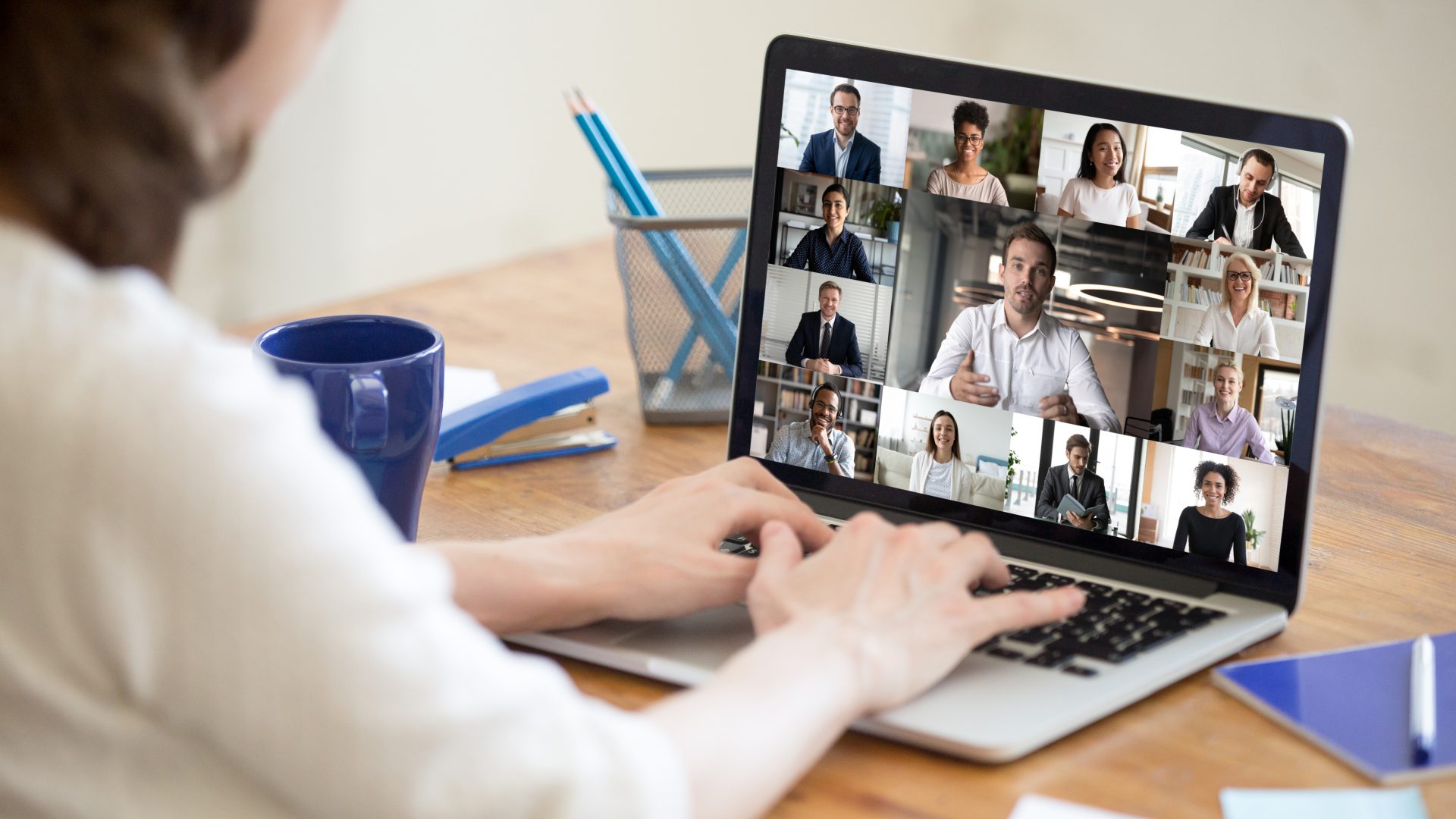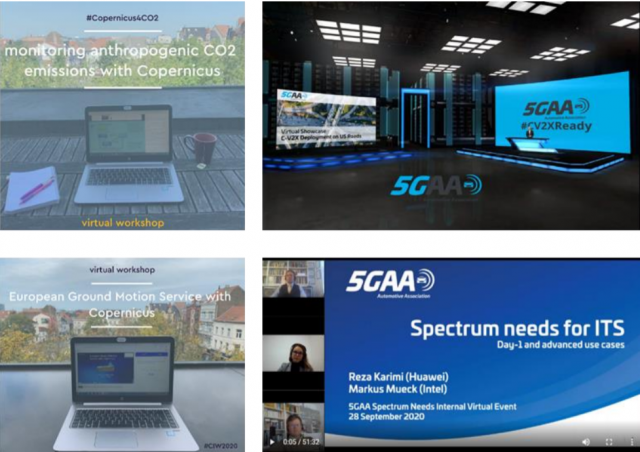
experience
2020: events going virtual
COVID19 accelerated the growth of digital events in 2020. Having organised more than 20 events, logos and MCI have developed multifaceted experiences to address various client needs: covering everything from webinars to more complex events. In this case study, we share the outcome of our year-long work with three of our leading clients. It resulted in logos building up precious know-how on the specificities and mechanisms that make a digital event successful.
challenge
- 5GAA, a global cross-industry organisation, aimed to organise internal and external physical events to support its mission: bridging the automotive and telecommunications industries to define the next generation of connected mobility solutions.
- The European Commission wished to boost the uptake of Copernicus services among industry stakeholders through four physical workshops.
- Euralarm, a global association representing the fire and security industry, wanted to organise two physical policy events to support an awareness-raising campaign about crucial challenges for the electronic fire and security industry.
The pandemic changed the event planning of 2020 and forced logos, clients, to find new ways to pursue their objectives. The initial concept and timeline had to be rethought. The aim was to create digitally immersive and interactive experiences bringing together experts, industry stakeholders and relevant decision-makers for technical discussions and networking.
In this context, three 5GAA quarterly meetings, including the General Assembly, were turned virtual. One of these quarterly meetings was supposed to include a physical demonstration of C-V2X technology on public roads. The association decided to organise a
virtual Showcase | C-V2X Deployment on US Roads to replace it, presenting three deployment programmes of C-V2X technology from different member companies across various US states. One of the videos was provided by a member company, while logos coordinated the production of the ones regarding the deployments in Arlington, Texas and Alpharetta, Georgia.
With the flagship Visionary Roadmap for Advanced Driving Use Cases, Connectivity Technologies, and Radio Spectrum Needs, 5GAA provided a consolidated industry view on the deployment of connected vehicles. The 5GAA leadership presented the findings in a digital PR event and a webinar in partnership with the Financial Times.
Finally, TNO, a Dutch research institute, carried out a study on the Environmental Benefits of C-V2X due to the increasing pivot towards sustainability. Once more, this study was presented in an online event together with EU policymakers. This webinar allowed 5GAA to be further involved in the EU media sphere by cooperating with media outlet Euractiv.
As for the European Commission, the second Copernicus industry workshop planned in April 2020 was delivered virtually in June 2020. The focus was on “monitoring anthropogenic CO₂ emissions”, which is pivotal to measuring progress towards a decarbonised economy and fulfilling the Paris Agreement objectives. Reliable and consistent data on emissions is therefore critical, and Copernicus services can prove invaluable in that regard. Following the success of the digital workshop, the third workshop also happened digitally in October 2020. The focus was on the “European Ground Motion Service” of Copernicus. This new service aims to provide reliable and consistent information regarding natural and anthropogenic ground motion phenomena over Europe and across national borders.
solutions
Turning physical events into virtual implied many changes:
- Advocacy strategy: logos and MCI worked to find the best media partner for two of 5GAA’s events. logos supported Euralarm in refining clearly and persuasively its arguments and messages.
- Audience recruitment: logos designed and implemented a promotional campaign to boost the 5GAA external events and Copernicus workshops’ attendance with both European and international experts. Indeed, moving the events to a virtual meeting platform meant that anybody in the world could join the discussion. Social media channels were used to promote events. Moreover, for the Euralarm events and Copernicus industry workshops, logos targeted and invited specific stakeholders in close consultation with the clients. logos also managed the online registration process.
- Moderator engagement: for the moderator and the speakers, taking part in a virtual event was new. logos thus created a participant guide explaining how to proceed digitally (e.g.raising your hand, giving the floor, PPT slide deck). To ensure good audience engagement, logos also supported speakers in organising online polls. In close consultation with Euralarm thematic and sectoral experts, logos consultants selected the topics to be discussed. logos also identified the most relevant speakers. Finally, logos facilitated online rehearsals with speakers.
- Online polls: to interact with the audience, online polls were used for the Copernicus industry workshops’ Q&A sessions.
- Timing: because following a workshop online is relatively new for most and can be more tiring than attending a physical event, logos recommended breaking up events. Indeed, the Euralarm event, composed initially of a breakfast and a diner, was broken into two small events. A one-day Copernicus industry workshop was spread over two consecutive days with half-day engagements. For the latter, virtual attendees participated in thematic sessions with presentations given by invited speakers in the morning. In the afternoon, they could e-meet the speakers and other participants in networking sessions.
- Technical set-up: logos and MCI Brussels set up the necessary platforms.
- Branding: logos has also created the events visual identity and developed related assets such as PPT templates, agendas, e-mail invitations, and speaker visuals when needed.
- Integrated audio-visual solutions: For the 5GAA’s US Showcase, logos and MCI Germany cooperated with MCI USA and four additional external partners to set up a fully-fledged digital experience involving an online platform, a filming crew, a video editing company and a communication agency.
results
- 7 digital events in 2020 (2 Copernicus industry workshops, 2 Euralarm events and 3 5GAA events)
- An average of 1,800+ attendees from 65+ countries participated in logos events
- An overall reach of 85 000+ on social media platforms
services
Virtual events, event branding & audience marketing, social media management, online & offline strategy, visual assets, speaker & programme management, event reporting, policy monitoring & intelligence, outreach programme
